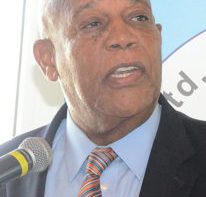Regional general elections this year provided some interesting snap-shots about the growing sentiments of citizens as political winners promise to deliver on their promises and the vanquished refocus their energies on possible comebacks.
On March 13, Dr. Keith Mitchell became Prime Minister for Grenada for the fifth time as his New National Party (NNP) dealt a consecutive clean sweep victory over the National Democratic Congress (NDC).
Mitchell, who has been in politics for 34 years, has now served a combined 23 years as Prime Minister, will become the region’s longest-serving Prime Minister should he complete his current term. He has served as Prime Minister from 1995 to 2008 and then from 2013 to present.
In the 2013 general elections, NNP won by a clean sweep of the 15 parliamentary seats, in which 88% of the 62,148 registered voters from a total population of around 107,000 people participated. In this year’s general elections, the NNP won support from over 33,786 citizens among 78,222 eligible voters. The NDC won just under 23,000 votes, with the remaining 8 parties hardly registering in the ballot boxes.
Despite being given the overwhelming mandate, Mitchell said government will govern in the best interest of all Grenadians: “You can’t ignore that 20,000 people voted against you (so) the task is to bring that element into the decision-making process.”
On March 21, the incumbent Antigua Labour Party (ALP) – headed by Prime Minister Gaston Browne — won 15 of the 17 parliamentary seats to secure another term. In the process, the ALP increased its parliamentary majority by one seat.
The general election was held 15 months before it was constitutionally due in June 2019.
The country’s official opposition, the United Progressive Party (UPP), headed by Harold Lovell, won 1 seat, with the other seat going to the Barbuda People’s Movement (BPM).
A total of 51, 258 Antiguans & Barbudans were eligible to vote and voter turnout was 76.3%, lower than in 2014. The ALP amassed 23,063 votes, with UPP picking up 14,440 votes and BPM pulling in 558 votes.
Following the win, Browne pledged to work for the development of all citizens: “No matter who you may have voted for, I offer you love and friendship…And I say to you I will work for you until I die. I will continue to work for your development.”
Meanwhile, Mia Mottley’s Barbados Labour Party (BLP) registered a historic clean sweep of all 30 parliamentary seats in the May 24 general elections.
The Democratic Labour Party (DLP), headed by outgoing Prime Minister Freundel Stuart, had been in office for a decade, most recently under Stuart. In conceding defeat, Stuart stated that he “unhesitatingly and unequivocally and frankly” takes responsibility for the loss.
Mottley, 52, now becomes the country’s first female Prime Minister. In 1994, she was one of the youngest Barbadians assigned a ministerial portfolio in the Ministry of Education, Youth Affairs and Culture at age 29.
There were also other firsts for Mottley: she was appointed Barbados’ first female Attorney General and Minister of Home Affairs in 2001 and became the first female political leader of the BLP in 2008.
During her victory speech, she said: “There should be no time for gloating. We are all one people. We are Barbadians. We will need many hands to help make light work. We will rebuild Barbados together. We have to get to the task immediately.” ¤




